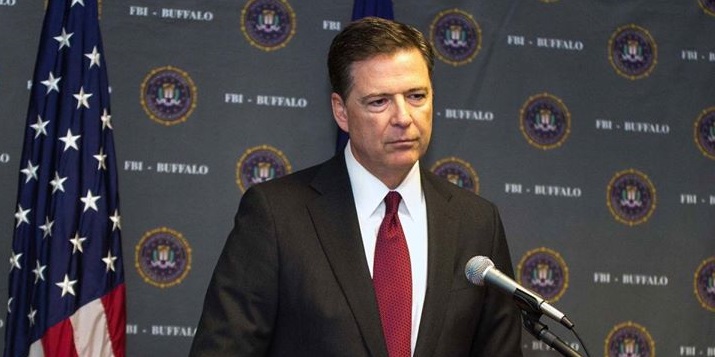FBI chief James Comey defends decision not to prosecute Hillary Clinton

FBI Director James Comey announced this week that the bureau is recommending no charges be filed against Hillary Clinton regarding her use of private email servers and handling of classified information during her tenure as Secretary of State. That decision, the FBI director explained, was based on the absence of evidence of criminal intent in mishandling classified State Department emails. Two days later, Comey defended the decision to hostile lawmakers in the House Oversight Committee. FSRN’s Nell Abram has more.
Download Audio
Republican Rep. Trey Gowdy of South Carolina complained that the FBI’s decision to not prosecute Clinton, the presumptive Democratic nominee for President, creates the appearance of a two-tiered justice system.
“And my real fear is this,” Rep. Gowdy said, noting that the chairman had also touched upon the issue. “This double-tracked justice system that is rightly or wrongly perceived in this country, that if you are a private in the army and you e-mail yourself classified information, you will be kicked out. By if you are Hillary Clinton and you seek a promotion to commander-in-chief, you will not be.”
Most lawmakers focused on the mishandling of classified materials. But open government advocates say Clinton’s use of a secret, shadow communication system is part of a growing trend of government officials trying to dodge public record keeping as required by laws like the Freedom of Information Act.
“Clinton’s choice to use a personal email system exclusively for government business is unusual,” said Alex Howard, an analyst with the Sunlight Foundation, a nonpartisan group that advocates for transparency at all levels of government. “But it’s just the most high profile example of where you see public officials using personal devices, personal email accounts, to conduct public business in a way that may not be captured by open records laws, either by statute, or by audits of the Freedom of Information Act professionals at the state or, in this case, federal level.”
Attorney General Loretta Lynch said this week that she accepts the FBI’s recommendations and will not file charges against Clinton. Lynch has been criticized for privately meeting with former President Bill Clinton just days before the Justice Department was due to deliver its verdict whether to indict his wife. Lynch is likely to face questions of her own at a separate oversight hearing of the House Judiciary Committee next week.











